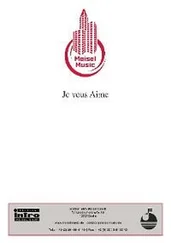I held her and walked until my arms began to shake and then I found a hollow place for us to lie. We were off the Toneybee estate by then, making our way very slowly along the turnpike back to town. I shambled the two of us down off the road and into a leafy ditch. I knew it was unlikely that anyone would pass us on the road, but I did not want to risk it.
I sat in a pile of warm, moist ground to catch my breath and I held Rosalee in my arms. She nestled even closer. Eventually, her body went slack against mine, and I realized she had fallen asleep. I eased myself down to the ground, until she was lying almost on top of me, her limbs entangled with mine. I tried to match my breath to hers but I couldn’t, I grew winded. I settled for breathing in her air, which only smelled slightly sour. Mostly her breath smelled like the grass and the leaves rotting around us. I lay with her for a long time, felt the quick beat of her animal heart against my own. Her skin on me began to feel too hot. I lifted my face up to the sky and imagined lying there with her forever. I squeezed my eyes shut and willed that it could be so. And then I reached up and took her arms away from mine, rolled her gently to the earth, stood up and brushed the dirt from the seat of my skirt, took my battered suitcase in my hand, and scrambled out of the gully and left her there.
It didn’t really occur to me what I had done until I was more than a mile away, almost at Courtland County’s train depot. I hadn’t planned to do it at all. As I walked away from her, my heart and head separated, floated apart, became two separate entities; my heart stayed in the ditch with Rosalee, but my mind was already at the train tracks, waiting for the next car out. I did not believe what I had just done. My original plan was to take her all the way back to Courtland County with me, to smuggle her aboard the 4 a.m. milk train to Boston, to find a suitable home for her in the city. I imagined delivering her to a delighted laboratory at Harvard or some tidy city zoo. I’d make her life over and then I’d make my life over, too, far away from Stars of the Morning and falsely friendly white men.
But.
But.
She was so very heavy in my arms. And her skin was so hot, unbearably hot, that when I finally disentangled myself it peeled away from my own. And she had so loved the night that it did not seem fair to consign her to the world of people again so quickly. At least, that is what I told myself to make it right.
The night was warm, she wouldn’t catch cold. I knew I had to hurry if I was going to catch the train to Boston.
And I made the train, but when I got to the city, I found my conscience had galloped down the tracks ahead of me and met me there. As soon as I stepped off the train, it hit me, hard, between the eyes and made me flush with shame all over. I took what little money I had and headed to the West End, where I knew Negroes lived, and found a room so similar to the one I’d just left it made me a little bit queasy. I waited anxiously for one full day, and in the morning I bought every paper I could find and scoured the pages for any news items, any mention, some funny little story about a hunter or a farmer or a driver startled by an ape in the Berkshires. There was none.
I bought a paper every day for a week and a half, despite the cost, but still there was nothing. So I imagined an item. I imagined a girl, the paper would say she was from “the Negro quarter of Courtland County,” discovering one of the charges of the Toneybee Institute for Great Ape Research in a small clearing a mile or so away from the institute and the mystery of how she got there. And I felt free. I imagined that the girl who found her was one of my students, that she was good and kind, and I thought of her as I wandered around the city asking for work and finding none. I thought, with pride, of that imaginary girl, She’s better than me .
I think I am going to San Francisco next. There are, after all, as Mumma told me, Stars of the Morning everywhere so surely they’ve made it as far as that coast. I imagine, I hope very much, I am in fact counting on the assumption, that the golden light of the West and the spacious beaches and bountiful orange groves means the light of the Stars of the Morning is not so harsh there, not so unforgiving. Far stranger things have happened. I have to save up money for it, though, so I’m leaving for parts not yet known. But I wouldn’t write down what they were if I knew them.
Before I leave Boston and New England for good, though, I take from my skirt pocket the scrap of drawing I’ve kept with Rosalee’s face. I fold it in three. I put it in an envelope, with this almost confession I’ve written, this attempt at explanation for my many betrayals of my race and of dumb blameless beasts. I take drawing and confession and I mail it to you, Dr. Gardner, whom I still love, still, despite all, knowing that I should not, so that you may finally know my true name.
But only if you wish to hear it.
The reporter was on us by the end of January. That careening, desperate Thanksgiving dinner badly frightened Miss Toneybee-Leroy. Dr. Paulsen was worried, too, despite her attempts, with cookies and confidences, to hide it. For weeks, her mouth was a blush of yellow chalk dust.
My mother tried to convince the two of them that there was nothing to worry about. Uncle Lyle and Ginny were too disgusted with our family to ever talk. The whole business was just as mortifying to them as it was to us. The ultimate rebuke, for them, was silence.
But no one at the Toneybee believed her. She was not, at that point, a credible source. They decided, in another showing of Dr. Paulsen’s clammy, frenzied cunning, to scoop themselves.
After a Christmas spent watching Charlie scrape the wrapping off shoe boxes filled to the brim with Raisin Bran, after a New Year’s Eve celebrated in the dim glow of our father’s television set while Callie lit a noxious stick of incense at midnight for good luck and prosperity, the cheap oils in the stick bringing in a new year dank and far too sweet, we had a guest for dinner.
All I remember about him was his soft belly that poked through the button gaps of his dress shirt. It made me queasy whenever I caught a glimpse of it. He never announced himself as a reporter and my mother never called him that, either. She said only, “This is Paul, he’s our guest for the day. He’s here to learn more about the experiment. Please be polite, girls.”
Paul played catch with my mother and Charlie and fast-forwarded through Max’s videotapes and ate dinner with us, during which he attempted to win me and Callie over with the voice of an adult unused to children — all brightened vowels and sly teasing. I stonewalled most of his questions, but Callie, of course, helpfully and happily chattered away about her love for Charlie. She taught Paul to sign I love you and Hello , giggling when he bungled the movements.
Paul’s article came out in February, just in time for Black History Month. We saw it on a Sunday, on the front page of the science section of the Boston Globe . There was a photo Max snapped of us, unaware, months before: me and Callie and Charlie and my parents making spaghetti. To the Toneybee’s credit, they did not crop our father out of the picture. The caption read BREAKING BREAD WITH AN UNUSUAL BROTHER.
The article itself detailed Charlie’s sign acquisition, his love of my mother, Callie’s love of Charlie. There was a short paragraph about the book Man or Beast? and a brief quote from Frances Gorey, but these were buried beneath a longer interview with Miss Julia Toneybee-Leroy, who was featured in a full-length photo on the inside page, smiling gummily, the skeleton of Daisy, yellowed now, on the table beside her.
Читать дальше
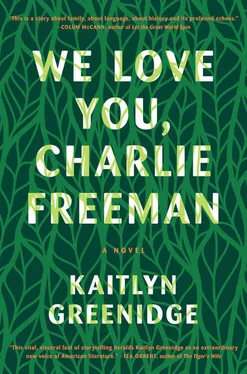





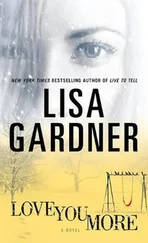
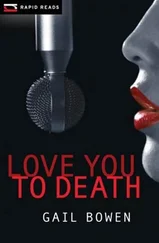
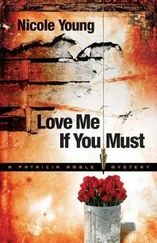

![Ally Carter - [Gallagher Girls 01] I'd Tell You I Love You But Then I'd Have to Kill You](/books/262179/ally-carter-gallagher-girls-01-i-d-tell-you-i-lo-thumb.webp)

